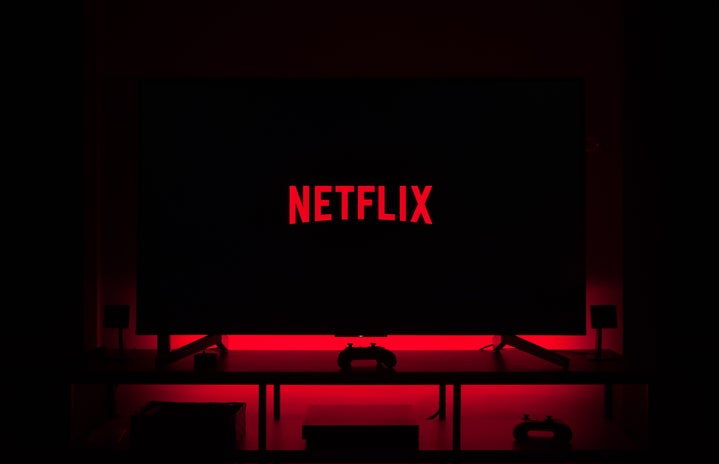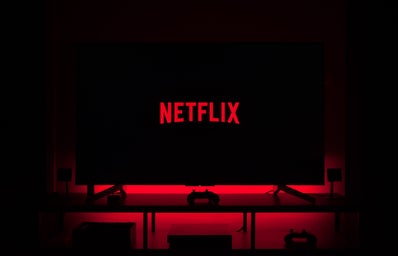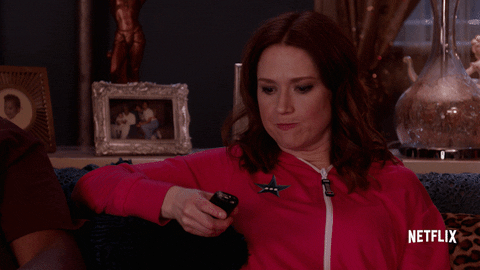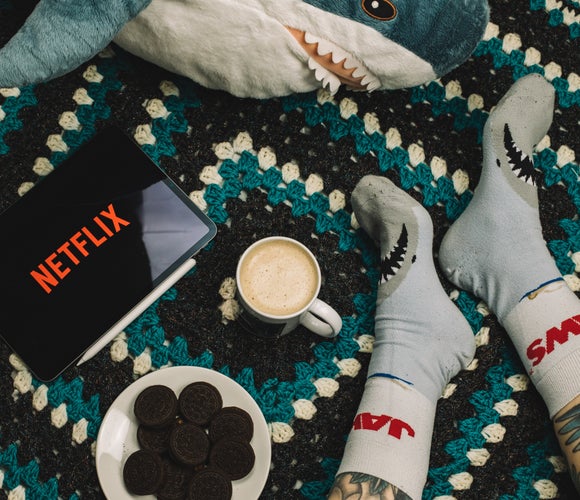Netflix’s obsessed and stalker-narrated murder drama You is messy — but compelling. Don’t we all love a good chaotic and dark, almost toxic romance story? Its lead role, Joe Goldberg, is a monster in the guise of a seemingly thoughtful boyfriend; it almost drives us, as the viewer, to feel bad for him — to pity him and not view him as the monster he really is. Especially since he always makes it seem as if it was the other person’s fault for his actions and not his own: “you made me do this.” And this has been the driving force of the series; something about You has always felt as if it is performing a ballet; dancing and toeing across the soft spots of the story, trying to create the impression of a momentum even when it is staying in one place.
The third season of You, which has just been released on October 15, is the best it has even been; a bit dark, stingy, even a bit hopeful, yet willing to screw with the audience and provides a new outlook on the monstrousness of Joe Goldberg — and Love Quinn, even. With more killings than ever, the third season follows a seemingly perfect family; a husband, a wife and their newborn baby boy — you would never guess that your next-door neighbours would turn out to be serial killers, would you?
Beyond the unnerving gaze and dark hair, the most striking feature of You has always been the use of the internal monologue. The story, seen through the eyes of Joe, has been narrated with an intimate second-personal address, a familiar trope seen in romantic stories that has defamiliarized and reframed as nightmarish intrusions — because is it really romantic that he stole your notebook and has been carrying it around with him for weeks, stalking you on social media, or stealing a pair of your underwear to keep with him? Television shows rarely screw with its audience the way that You does; this unreliable narrative is a challenge for storytelling and only few shows can pull it off. You does this with a warped and twisted sense of confidence with it.
The show has also thrown in lots of tools into its creation – the flashes of Joe’s past, distracting neighbourhood children, hovering side characters who inevitably intrude — most of the first and second season has been stuck in the fundamentally simplistic idea of the show’s basic storyline: Joe likes a woman, he likes her a lot, he likes her a little too much, and then he likes her to death. Of course, there is more to it; How will Joe lure his latest love object? Will she see through him? Will one of her friends find out and get killed to keep them quiet? (R.I.P Peach) How does it all get filtered through Joe’s returning childhood abandonment issues? It’s a perfect show for anyone who likes their serial killers to be calm, pleasant and detail-oriented; he almost sounds like a perfect boyfriend — minus the serial killer part. It is not until season three where this pattern changes — shifting the show completely.
If you remember season two, it leaves off where Love Quinn, the woman Joe became obsessed with, screams out that she was pregnant to avoid having her throat slit by him. The two of them get married, have a baby and presume to live “happily ever after.” Season three kicks off with the biggest innovation to the show’s previous seasons; this season is set in another setting, of course. We are now in Madre Linda, a fictional Bay Area suburb and it is everything Joe disdains. Los Angeles might have had men with buns and organic produce — in Madre Linda it is gluten, sugar and preservative-free only, made from organic ingredients you probably grew in your own garden without the use of pesticides or chemicals.
The people in this town worry about sustainability whilst maintaining and living in enormous mansions — and there are even new characters; strong additions to the series: the neighbourhood moms, who run the entire suburb, post every inch of their social, emotional, financial, sexual and physical lives on social media. For instance, Sherrey, an influencer in the mommy space who nearly has a stroke at the sight of her kids eating real sugar, and Carey, an entrepreneur who views the path to enlightenment as accessible only by counting macros — and together they are AWFUL, but funny.
You has turned into something it never did in the first two seasons — an act, something that has to be maintained. Joe sees Sherrey and Carey and hates them so much that he can barely maintain his composure around them — and whilst being stuck inside his perspective as the narrator, we can see that the portraits of Sherrey and Carey are so detailed and specific, and unlike Peach Salinger’s in the first season, they occupy such a delightful space at the intersection of mockery, sincerity and sadness.
The most important change in this season is the shift of how the show fundamentally works. In season three, Joe is not alone. He is seemingly still in love with Love Quinn, the woman he became entangled with in the previous season, and they act like a normal couple. They got married, moved to the suburbs, settled down and had a kid, and Joe only did all of this to protect his child — because Love is just as dark and violent as Joe; suddenly, it is not just a one-body problem, it is two—and it does not take longer for the body count to grow higher than two.
Love is a foil for Joe, after all. A mirror but also a nemesis; his love object, mother of his child, and a constant reminder of his own flaws. Both have abandonment issues and realize together they can work on the same side. A stalker drama, sure, can be fun, but it’s got nothing on the murder-romance possibilities of a serial killer version of Mr. and Mrs. Smith, where no one can trust anyone but also someone needs to finish up the murdering in time to take care of their child. Their romance thrives on violence; they are toxic and violent together yet cannot leave each other.
By the second half of the season, it has become clear that Joe is unable to suppress his compulsive need to obsess and stalk women — which we have seen in the previous two seasons and already in the third with Love killing the next-door neighbour, Natalie. Joe’s attention has again turned over to another woman: his boss, Marienne.
Marienne fell for the charm; she even ended up agreeing to run away with Joe and start a new life with her daughter and his son. When Marienne’s own abusive ex-boyfriend had turned up murdered and a bloody t-shirt was hiding in the nursery, Love had put it all together. She set the same trap she had used on her first husband and poisoned Joe using flowers she had been tending to in their garden. Assuming he was paralyzed (if you watched the first season with Guinevere Beck, you would know that he is not in fact dead nor paralyzed), he was the first to attack and injected Love with the same poison. With his dead wife laying out on the floor, he used the typical clean up routine and pulled together a box of trinkets that tied Love to the murder of their neighbour, Natalie, and even made a meat pie and cut off his own toes to bake inside — all to stage his own death. The length he would go to. He finished off by writing an email to the Madre Linda community from Love, in which she admits to all the crimes and takes responsibility for coercing Joe into taking part, before setting fire to his house and leaving again to start somewhere new. And where does he go? The same place Marienne is off to; Paris.
my final thoughts?
What I question about this — is Henry, their baby. Has he already witnessed and been exposed to too much violence in his short life? Henry had measles — and I assumed it would be due to being exposed to a dead body at such a young and impressionable age, and maybe this is why Love and Joe should be on the run — yet it was merely because of anti-vax parents (this feels a bit like a reference to the COVID-19 pandemic we are currently in.) The final decision Joe made was leaving his baby son with his co-worker, Dante, who had been struggling to adopt. One thing I am curious about is after the next and final season, will there be a story about Henry? Does he inherit the traits of his mother and father — does he, too, become a serial killer? Does this run in his genetics? Does he find out about his parents, who they are, what they have done and become like them? Does this give him early childhood trauma that will impact him for the rest of his life? Or was he too young to remember?
It has already been announced that You will be renewed for a fourth season — and no, Joe will not stop killing, yet. It’s hard not to be a little pleased that he is still out there, doing his thing, finding the next You. But will this be the end?
My final thoughts on this season of You, is yes, it is the best season so far. The storyline is completely different yet underlyingly the exact same; Joe is still on the lookout for the next You and honestly never stopped looking. His stalker-obsessive ways remain the same even though he is married and has a kid. The relationship between Love and Joe was completely toxic, not just because they were both murderers, but for putting their child through something no child should go through, even cutting up a body with their newborn baby only a few feet away, or taking the kid with them to go bury one.
It felt as though all this drama was happening and it was too dramatic, but still compelling enough to binge watch. There were many instances in which the story could take different twists and turns that could have made it more interesting to me, like the story with Henry and the measles, or the next-door neighbour actually knowing what happened to his wife, Natalie, and making a move with this; they could have also made the story completely different from the previous two, yet fell into the exact same pattern in the end — which makes it feel like a run-on story. To me, I think You would have been better with a different ending. Instead of Joe outsmarting and killing Love, the story could have had an ending where Love ends up killing Joe, blaming all the murders on him, and then shifting the entire show from then on, to the perspective and inner monologue of Love. But I suppose this would have been too much of a risk —killing off the main character of the show. Yet I don’t think it is necessary to have a season four for the same thing to happen in a completely new country when we could have had a season that explored the character additions more, like Henry, Sherrey and the town of Madre Linda. And so maybe, it’s time that the hunt for You ends.




